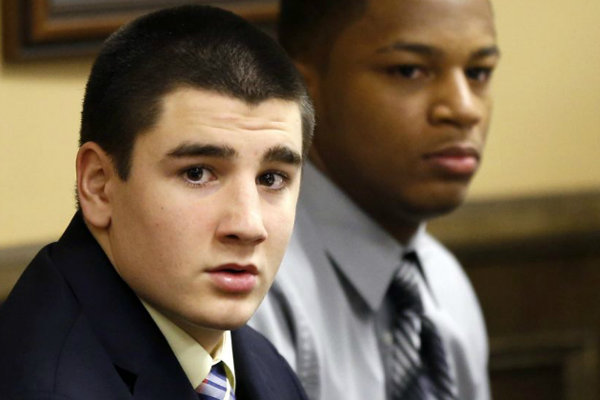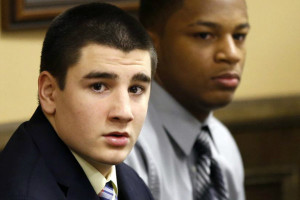
Podcast: Play in new window | Download
Subscribe: RSS
 March 18, 2013 – Segment 2
March 18, 2013 – Segment 2
Since the case against two high school football players accused of raping a female classmate in Steubenville, Ohio, gained public attention, questions of gender equity and patriarchal societies as well as opinions surrounding sexual assault and assault prevention have raced to the top of public discussions. It is not often that a rape case becomes a national story but sexual assault prevention advocates and educators are using this one in particular to call attention to the ever-present inequalities between men and women and the rape culture that our society perpetuates.
Neil Irvin is one of those advocates. He is the executive director of Men Can Stop Rape; an organization whose mission is “to mobilize men to use their strength for creating cultures free from violence.” Training workshops, after-school clubs and public campaigns are all part of MCSR’s work to encourage men to take the lead in preventing violence against women. In Baltimore, Gail Reid, Director of Advocacy at TurnAround, Inc. claims that society intervention plays a huge role in the after effects of a public sexual assault case. As a health educator at Planned Parenthood, Rashaad Banks leads group discussions in which understanding what consent means is a main focus. Agreed among advocates is the belief that now is the time for a change in how we respond to violence against women.
From the Discussion
How Society Views Rape Cases:
“Classic victim blaming. Adults who are themselves entrenched in a culture. That’s the conditioning of it. Adults-men and women- feed into talking about ‘Oh these poor boys who were led astray’ versus ‘Here’s another example of violence perpetrated against a girl.'” -Neil Irvin
Unhealthy Masculinity:
“…Boys are receiving unhealthy messages about who they’re supposed to be as men. And a lot of those messages center around forms of violence so that when they are amongst one another, they attempt to compete with who can be more violent or more vile as a way to perpetrate or role model their type of masculinity. ” -Neil Irvin
Why Education is Key:
“A lack of response or a minimal response is a message to the youth: ‘That’s fine.’ A response early and immediate is giving that person an opportunity to look at the situation a little differently and change their behavior and not escalate and feel entitled to this behavior.” -Gail Reid
“Instead of always putting the blame on the person or the victim, we need to look at what is the perpetrator, what is the abuser, what is the person thinking that causes them to do these actions and get to the root of that before we start looking at what the victim might have or could have done.” -Rashaad Banks




